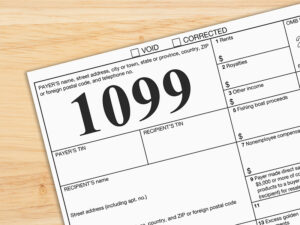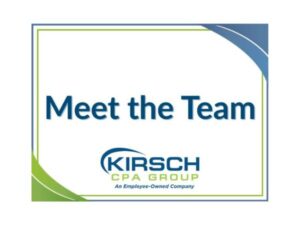Construction Business Owners: Avoid These Two Common Accounting Problems
Kirsch CPA Group
May 13, 2024

For construction companies, accounting isn’t as simple as just balancing the books every month. Contractors tend to have multiple projects underway at various stages of completion and, ideally, more in the pipeline. Your accounting practices need to be nimble, multifaceted and comprehensive.
Unfortunately, from underperforming budgets to overlooked expenses, contractors often find themselves grappling with financial reporting challenges. Let’s look at two “big picture” accounting problems common to many construction businesses.
1. Lack of Organization
Among the most prevalent causes of accounting struggles is lack of organization. With every project having different moving parts, keeping track of expenses, invoices and receipts can quickly become overwhelming. Without formalized accounting practices for gathering and organizing information, critical data and important documents can be misplaced, overlooked or just hard to find. Eventually, this can lead to faulty financial reporting as well as unnecessary obstacles to timely collections for work performed.
If you’re still using an off-the-shelf general business accounting program or some combination of paper processes and spreadsheets, it could be doing more harm than good. Investing in construction-specific accounting software can help clarify and streamline critical processes.
These software solutions automate tasks and create digital workflows and filing systems. They typically come equipped with features such as expense tracking, invoice management and budget forecasting. Such functionality enables staff to maintain a clear, organized record of financial transactions. Plus, today’s cloud-based mobile tools make it quick and easy for authorized team members to input and access financial information, as well as store and locate documents, whenever and wherever necessary.
2. Outdated or Lax Processes
Failing to reconcile accounts, neglecting to track expenses in real time or relying on manual data entry can introduce errors and discrepancies into the accounting process. Outdated or overlooked procedures not only undermine the credibility of your construction company’s financial statements and other reporting, but also can expose your business to compliance issues and legal risk.
If you haven’t already, establish standardized accounting processes supported by clear procedures to help ensure accounting consistency. And even if you have established them, most accounting processes and procedures can be improved over time as errors are caught, technology improves and the business grows. Best practices include:
- Conducting regular reconciliations of financial accounts,
- Implementing real-time expense tracking systems,
- Using standard forms, and
- Automating manual and repetitive tasks wherever possible.
Make sure you’ve established and are continuously improving sound accounting or accounting-related processes for project managers as well. For example, they should compare actual labor hours and materials costs against each job’s budget to assess progress and make adjustments if necessary.
However, before projects even begin, there are accounting concerns to address. Accurate estimates are at the core of every construction business’s financial health. They should be as detailed as possible, itemizing all expected costs associated with the job in question. This includes the obvious: labor, equipment, tools and materials, of course. But estimates should also reflect overhead and indirect costs, which can be trickier to identify and quantify.
A good practice for both accounting and estimating purposes is to use an approach called “job costing” to assign a code and dollar amount to every project-related task or activity. Job costing can also help with strategic planning. Done properly, it should reveal over time which types of jobs are profitable and which ones aren’t.
Review and Improve
Many construction businesses developed their accounting processes years or even decades ago. As time passes, it’s not uncommon for inconsistencies and redundancies to develop. Contact Kirsch CPA Group for help reviewing and improving your processes and procedures.
Schedule an appointment to learn how we can support you
© Copyright 2024. All rights reserved.
More Resources

About The Author
Kirsch CPA Group is a full service CPA and business advisory firm helping businesses and organizations with accounting,…
Sign Up for Email Updates
Tags
Accounting & Financial News

1099 Rules Changes for Businesses
The One Big Beautiful Bill Act (OBBBA) eased the rules in 2026 for Form 1099-NEC, "Nonemployee Compensation,"…




